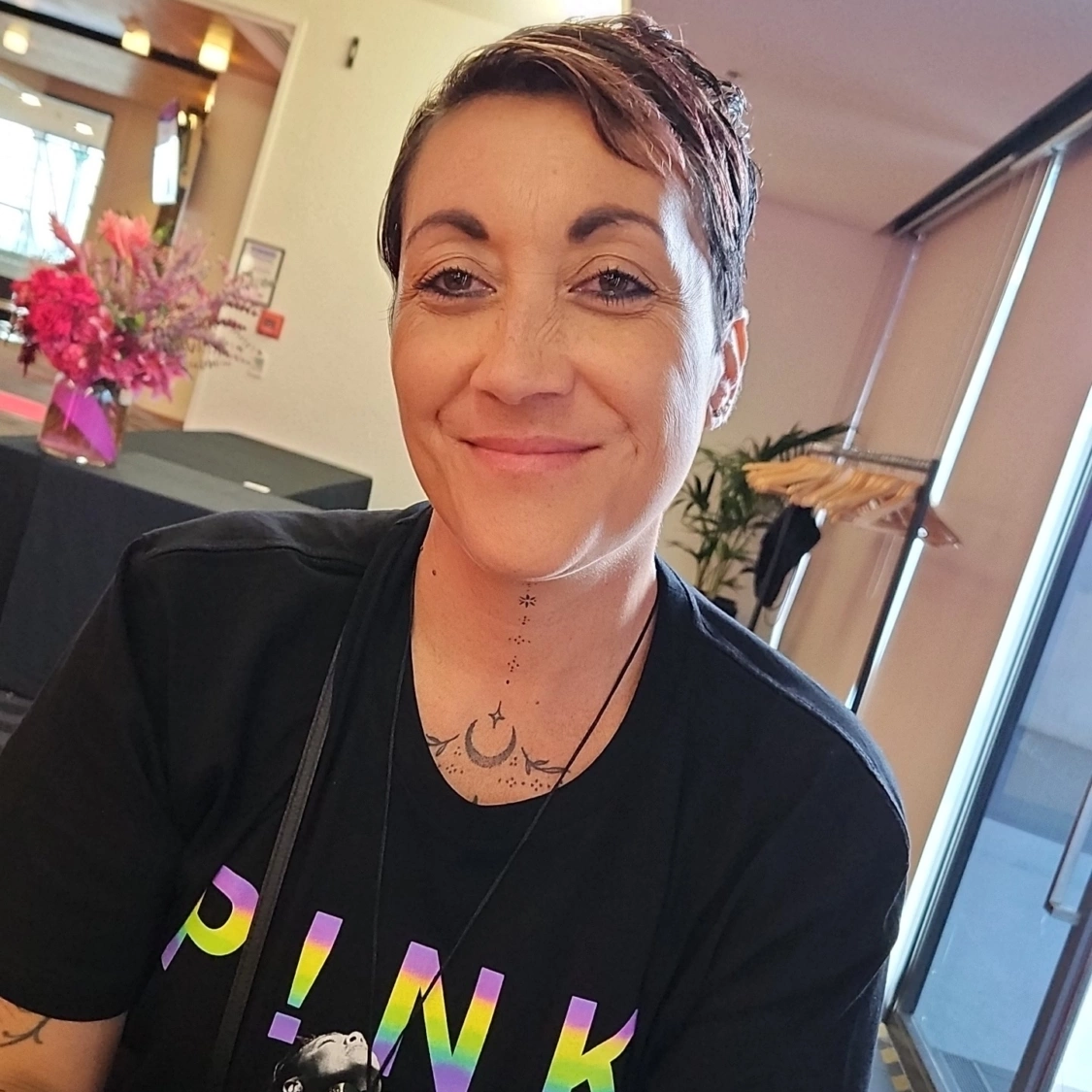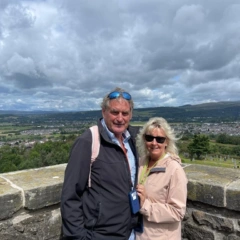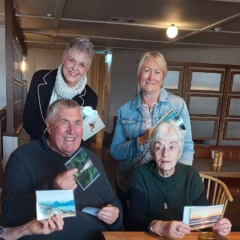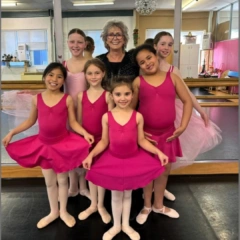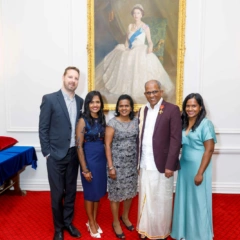Let’s get cracking
It was a good deed that led to a shocking discovery. In 2021, mum-of-four Kelly decided to begin donating plasma. She was in her first year of midwifery studies and had been making the trip up to Hamilton from her home in Pātūtahi for block weeks of teaching. “I thought it was the perfect opportunity to donate whilst I was up there.”
Shortly after the donation, Kelly was contacted by the New Zealand Blood Service and told that something looked unusual in the tests they had done. “They wanted to re-test. So I popped back in, did another test, and they said I should visit my GP when I got home.”
Kelly’s GP referred her to a haematologist, who gave her the life-changing news she had myeloma. “It was just surreal… I’d had absolutely no symptoms. So it was a shock. I’d never even heard of myeloma.”
Kelly’s myeloma was initially classified as smouldering. This meant that, for a while, she was able to carry on with normal life and keep an eye on it with regular blood tests. “Then we got to June of 2022 and my haematologist wasn’t happy with my blood results, and said we were going to start induction therapy. He spoke about harvesting my stem cells to do a tandem stem cell transplant.”
Her haematologist suggested that Kelly should have lenalidomide as her induction treatment. Unfortunately, lenalidomide wasn’t government-funded for this use, and it was going to cost Kelly $1000 a month to fund it herself. “They wanted me to do five months of induction. I was studying and we only had my husband’s income. But we wanted to go down the best route, and we decided to do the lenalidomide with the savings we had.”
“But then our whānau and friends got together and had a massive garage sale. My Hawkes Bay midwifery sisters organised a Hangi to raise money too. With the amount of koha that came in, we ended up with enough to fund the five months. Although, in the end, the myeloma was so aggressive that my haematologist decided to cut the last one and only do four induction treatments before my transplant.”
In addition to the amazing support from her family and friends, Kelly knew she had LBC as backup. LBC Support Services Coordinator Sean was able to relieve some financial pressure by providing petrol vouchers to help the family with travel.
Kelly had her first transplant in January, 2023, followed quickly by a second transplant in March. It’s clear from the way she talks about it that this process was incredibly challenging. “It was just mentally and physically draining.”
Kelly had put her midwifery studies on hold for a year, but by July she was ready to return. “In the second week back, I brought a beautiful baby boy earthside. And then the next day I got a call for an appointment with my haematologist.”
Not thinking the appointment was about anything serious, Kelly went into it by herself.
“I didn’t know what she wanted to talk about. And then she gave me eight weeks to live.”
Kelly doesn’t know how she made it through the rest of the appointment. All she could think about was how she’d tell her whānau that their world was going to come crashing down.
“But then my haematologist said, ‘There’s a clinical trial, and I think you’re the perfect candidate. But it takes six weeks to go through the screening process.’ And I just said, ‘Well, we’d better get cracking, because I’ve only got eight weeks!’”
In September last year Kelly finally got the go-ahead to take part in the MAGNETISMM-5 clinical trial. “Treatment was every week. I’d get a sub-cut injection in Waikato, so it was a matter of having to fly up there every week from Gisborne. That was so hard at the beginning.”
“We’re now six months into the trial and I had a bone marrow biopsy done last week. I got the preliminary results back on Thursday, and there are no myeloma cells present.”
Kelly’s not taking this for granted and she can’t wait to get on with living her life.
“I’ve actually got an interview next Monday with the Head of Midwifery to start my studies again. So I’m gonna give it one more crack. Third time lucky!”
Fast facts: Tandem stem cell transplant (SCT)
- Tandem SCT is when 2 autologous transplants are done in a row
- The goal is to deepen the treatment response and prolong disease-free survival
